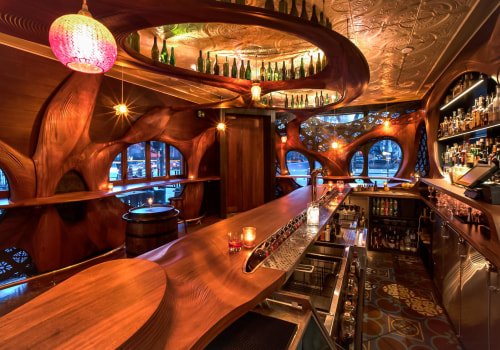The dress code for girls at Canadian music bars is all valid, from low waisted jeans to halter blouses, stiletto heels, knee-high boots, and sandals. Guys can wear jeans too, but they should be more dressed up. In some cities, such as Toronto, nightclubs have a dress code that focuses on a style of clothing historically associated with the black community. This restriction is still enforced in many establishments, even though styles have been relaxed in most cities.
At Brunswick House, casual wear such as khaki shorts, sandals and flip flops are allowed. However, baseball caps, running t-shirts or t-shirts are not allowed. On flyers and websites, clubs often warn against the use of these items. Landlords and managers deny that they discriminate on the basis of race and cite vague security reasons or a desire to create an exclusive environment.
Compared to five years ago, when it was unthinkable to enter a club without clothes, pants, shirts and shoes, standards have been relaxed in Toronto and other cities. Nowadays, jeans are allowed as long as they are not torn or very loose. The no-baseball cap rule still stands in many places but designer versions are usually allowed inside. In Vancouver, clubs recently expanded their dress codes to ban streetwear by designers (brands such as Ed Hardy and Affliction) due to the alleged association with gangsters. Compared to five years ago, when it was unthinkable to enter a club without clothes, pants, shirts and shoes, standards have been relaxed in Toronto and other cities. Nowadays, jeans are allowed as long as they are not torn or very loose. The no-baseball cap rule still stands in many places but designer versions are usually allowed inside. In Vancouver, clubs recently expanded their dress codes to ban streetwear by designers (brands such as Ed Hardy and Affliction) due to the alleged association with gangsters.
In England, hoodies have come under attack because of their relationship with hooligans. Urban clothing has changed over the years and is now less baggy than it used to be and more expensive. It has also been widely adopted by all races and ethnicities. Baba Khan, a well-known hip-hop DJ from Toronto agrees that urban clothing is negatively reflected in the media and therefore in clubs. Carol Allen, a Toronto businesswoman who also runs an online entertainment list aimed at the black community prefers dress codes that prohibit urban clothing because she wants to look good when she goes out with her friends.
Reuben May's study published in March in the journal Qualitative Sociology found that young blacks were denied entry to nightclubs in Athens, Georgia due to their clothing style. New nightclubs want trendsetters to have money to spend so dress codes also have a business reason. While blacks are disproportionately affected by these rules given that hip hop comes from an urban black tradition there is no straight line between dress codes and racism. As an expert SEO consultant, I'm here to provide you with all the information you need about dress codes at Canadian music bars. From low waisted jeans to halter blouses for women and designer jeans for men - there's something for everyone! But what about those cities where nightclubs have a dress code that focuses on a style of clothing historically associated with the black community? Let's take a closer look at this issue and explore what it means for those who want to go out dancing in Canada. At Brunswick House in Toronto, casual wear such as khaki shorts, sandals and flip flops are allowed - but baseball caps, running t-shirts or t-shirts are not allowed.
This restriction is still enforced in many establishments despite styles having been relaxed in most cities over the past five years. Jeans are now accepted as long as they're not torn or very loose - although designer baseball caps may be allowed inside some venues. In Vancouver, clubs recently expanded their dress codes to ban streetwear by certain designers (such as Ed Hardy and Affliction) due to their alleged association with gangsters. In England too, hoodies have come under attack due to their relationship with hooligans.
Urban clothing has changed over time - becoming less baggy and more expensive - but it has also been widely adopted by all races and ethnicities. Baba Khan - a well-known hip-hop DJ from Toronto - agrees that urban clothing is negatively reflected in the media and therefore in clubs. Carol Allen - a Toronto businesswoman who runs an online entertainment list aimed at the black community - prefers dress codes that prohibit urban clothing because she wants to look good when she goes out with her friends. Reuben May's study published in March in the journal Qualitative Sociology found that young blacks were denied entry to nightclubs in Athens, Georgia due to their clothing style.
New nightclubs want trendsetters who have money to spend so dress codes also have a business reason behind them - although blacks are disproportionately affected by these rules given that hip hop comes from an urban black tradition there is no straight line between dress codes and racism. So there you have it! Dress codes at Canadian music bars can vary from city to city but generally speaking they focus on smart casual attire such as jeans or khaki shorts for men and low waisted jeans or halter blouses for women. Baseball caps are usually not allowed but designer versions may be accepted inside some venues - while streetwear by certain designers may be banned due to their alleged association with gangsters or hooligans.



